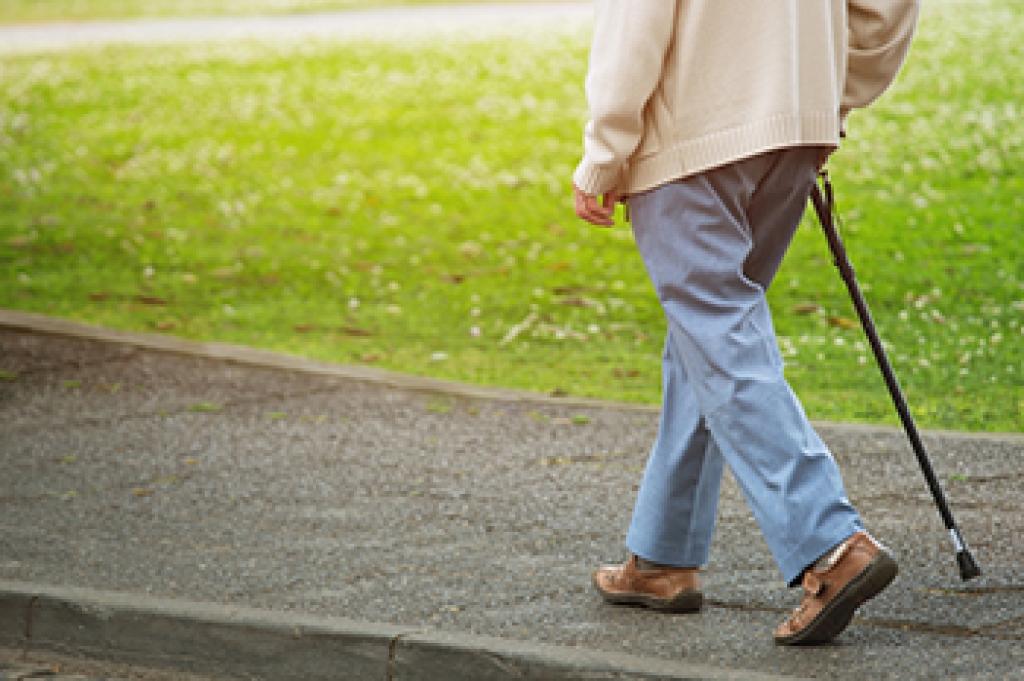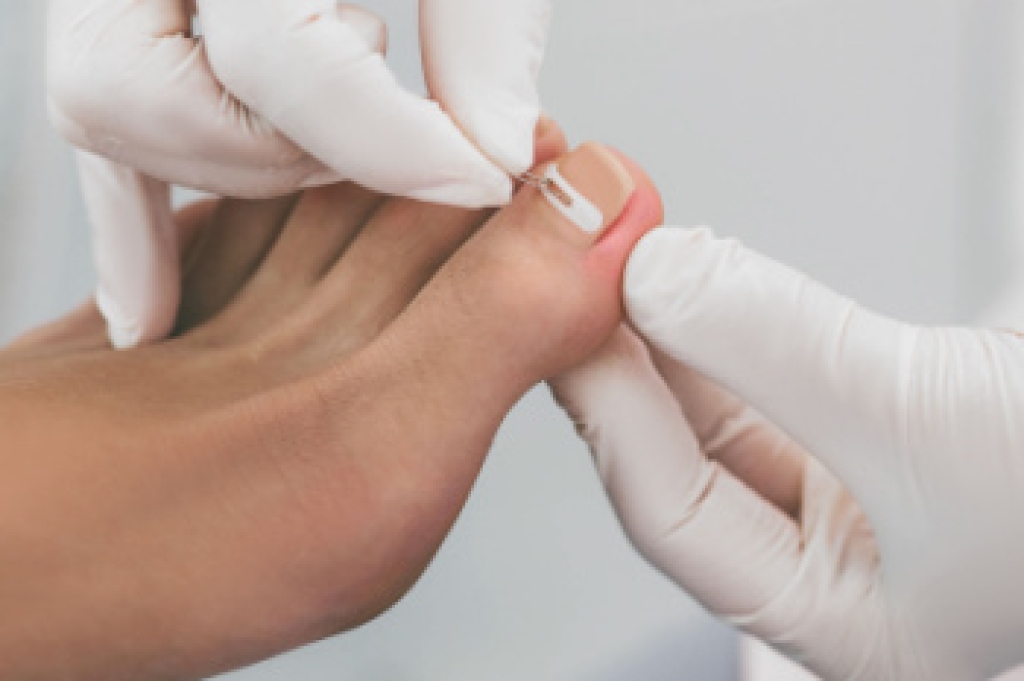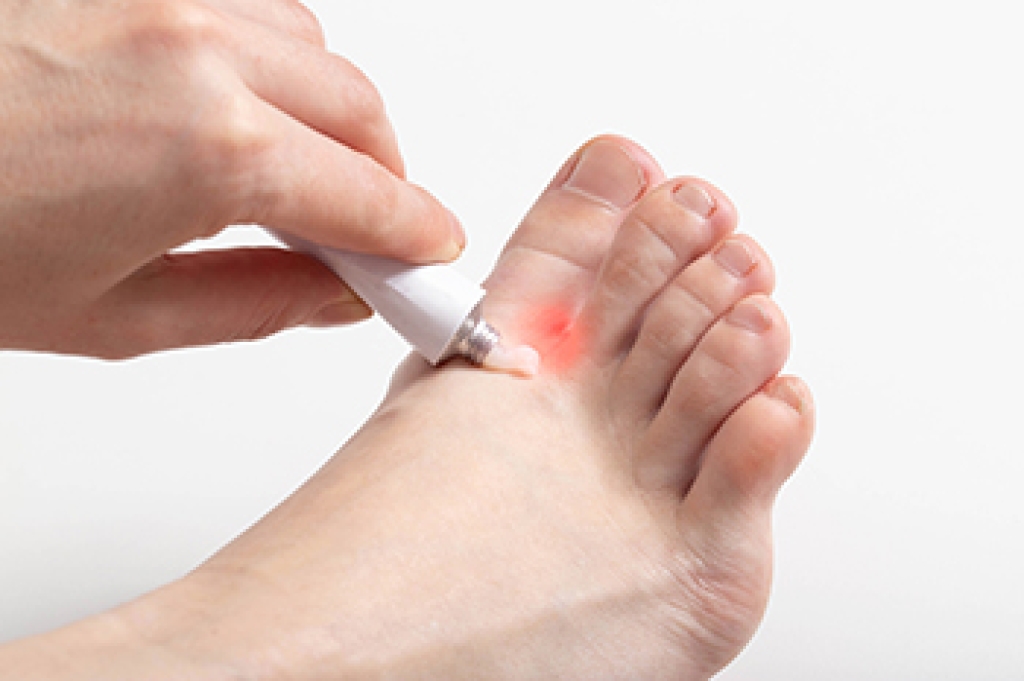Blog
Elderly Foot Biomechanics

While it is common knowledge that mobility declines as an individual ages, not enough attention is paid to the role of the feet in the aging process and movement. The foot is a flexible system that can adjust and help one move better depending on what is being done. With a better understanding of how the feet work in older individuals, proper treatments and exercises can be dispensed to improve movement and the maintenance of activity. If you are elderly and have mobility issues, it is suggested that you schedule an appointment with a podiatrist who can access your feet and gait to allow for an individualized plan to help you with mobility.
If you have any concerns about your feet, contact one of our podiatrists from Carolina Foot & Ankle Specialists. Our doctors can provide the care you need to keep you pain-free and on your feet.
Biomechanics in Podiatry
Podiatric biomechanics is a particular sector of specialty podiatry with licensed practitioners who are trained to diagnose and treat conditions affecting the foot, ankle and lower leg. Biomechanics deals with the forces that act against the body, causing an interference with the biological structures. It focuses on the movement of the ankle, the foot and the forces that interact with them.
A History of Biomechanics
- Biomechanics dates back to the BC era in Egypt where evidence of professional foot care has been recorded.
- In 1974, biomechanics gained a higher profile from the studies of Merton Root, who claimed that by changing or controlling the forces between the ankle and the foot, corrections or conditions could be implemented to gain strength and coordination in the area.
Modern technological improvements are based on past theories and therapeutic processes that provide a better understanding of podiatric concepts for biomechanics. Computers can provide accurate information about the forces and patterns of the feet and lower legs.
Understanding biomechanics of the feet can help improve and eliminate pain, stopping further stress to the foot.
If you have any questions please feel free to contact our offices located in Mount Pleasant and Charleston, SC . We offer the newest diagnostic and treatment technologies for all your foot and ankle needs.
Protecting Your Feet in Chilly Work Environments

As the temperatures plummet and the outside environment becomes frosty, safeguarding your feet during outdoor work is paramount. Wearing proper footwear is the frontline defense against the biting cold. Choose insulated, waterproof boots that shield your feet from moisture and provide thermal protection. Layering socks is an effective strategy, ensuring warmth without compromising circulation. Choose moisture-wicking materials to prevent sweat accumulation, as dampness can intensify the cold. Additionally, ensure your boots are breathable to discourage moisture buildup. Regular breaks offer an opportunity to warm up and restore circulation. Invest in quality, insulated insoles to add an extra layer of warmth and comfort. Be mindful of frostbite warning signs, such as numbness or tingling, and promptly address any discomfort. Prioritize foot hygiene to prevent issues like frostbite and trench foot. If you are seeking additional tips on foot protection while working during the winter months, it is suggested that you confer with a podiatrist.
While working on the feet, it is important to take the proper care of them. For more information about working on your feet, contact one of our podiatrists from Carolina Foot & Ankle Specialists. Our doctors will treat your foot and ankle needs.
Working on Your Feet
Standing on your feet for long periods of time can cause stress and pain in your feet. Your whole body may experience change in terms of posture, back pain, bunions, callouses and or plantar warts. There are ways to avoid these conditions with proper foot care, smart choices and correct posture.
Positive Changes
Negative heeled shoe – Choosing this shoe type places the heel slightly lower than the ball of the foot. These are great for overall foot health. Find shoes that fit you correctly.
Go barefoot – Our feet were not designed to be enclosed for all hours of the day. Try to periodically expose your feet to air.
Eliminate Pain
Foot Exercises – Performing simple exercises, incorporating yoga and doing stretches are beneficial. This will allow increased blood flow to the area and muscles of the foot.
Achilles tendon – Stretching the foot out flat on the floor will relax the calf muscles and tendon. These exercises can be performed almost anywhere. Make sure you add these exercises to your daily regimen.
With a little bit of this information and knowing more about foot health, you will notice changes. Foot stretches and proper footwear will help with pain and prevent further issues.
If you have any questions please contact our offices located in Mount Pleasant and Charleston, SC . We offer the newest diagnostic and treatment technologies for all your foot and ankle needs.
Chronic Ingrown Toenails

Chronic ingrown toenails can be a persistent and painful foot condition. They occur when the edge of the toenail, usually on the big toe, grows into the surrounding skin, leading to discomfort, swelling, redness, and sometimes infection. While an occasional ingrown toenail is common and often manageable at home, chronic ingrown toenails are a recurring problem. Several factors can contribute to chronic ingrown toenails, including improper nail trimming, wearing tight or ill-fitting shoes, genetics, and underlying foot deformities. Over time, chronic ingrown toenails can lead to pain and discomfort, making it difficult to walk and wear shoes comfortably. Treatment options for chronic ingrown toenails may include gently lifting the ingrown edge of the nail and placing cotton or dental floss under the nail to encourage it to grow away from the skin. In more severe cases, a podiatrist may need to trim or remove the ingrown portion of the nail, and in some instances, surgery may be necessary to permanently correct the problem. If you have ingrown toenails and you are experiencing pain or if it is a repeated issue, it is suggested that you schedule an appointment with a podiatrist for treatment and proper management of this condition.
Ingrown toenails can become painful if they are not treated properly. For more information about ingrown toenails, contact one of our podiatrists of Carolina Foot & Ankle Specialists. Our doctors can provide the care you need to keep you pain-free and on your feet.
Ingrown Toenails
Ingrown toenails occur when a toenail grows sideways into the bed of the nail, causing pain, swelling, and possibly infection.
Causes
- Bacterial infections
- Improper nail cutting such as cutting it too short or not straight across
- Trauma to the toe, such as stubbing, which causes the nail to grow back irregularly
- Ill-fitting shoes that bunch the toes too close together
- Genetic predisposition
Prevention
Wearing proper fitting shoes and using proper cutting techniques will also help decrease your risk of developing ingrown toenails.
Treatment
Ingrown toenails are a very treatable foot condition. In minor cases, soaking the affected area in salt or antibacterial soaps will not only help with the ingrown nail itself, but also help prevent any infections from occurring. In more severe cases, surgery is an option. In either case, speaking to your podiatrist about this condition will help you get a better understanding of specific treatment options that are right for you.
If you have any questions, please feel free to contact our offices located in Mount Pleasant and Charleston, SC . We offer the newest diagnostic and treatment technologies for all your foot care needs.
Symptoms of Athlete’s Foot

Athlete’s foot, medically known as tinea pedis, is a common and extremely contagious fungal infection that targets the skin on the feet, particularly the spaces between the toes. Among the primary indicators of athlete’s foot is persistent itching and burning sensations experienced between the toes and on the soles of the feet. The discomfort caused by this incessant itching can significantly impact daily activities, leading individuals to find relief through constant scratching or rubbing, which may serve to spread the infection. Redness and inflammation in the affected areas are also signs of athlete's foot. Prolonged exposure to moisture or heat, such as wearing sweaty shoes or walking barefoot in communal areas like public showers or pool areas, tends to exacerbate these symptoms. Peeling and cracking of the skin, especially in areas prone to excessive sweating or friction, are common occurrences in athlete’s foot. The skin may take on a dry, flaky appearance, resembling sunburn or dry skin, making diagnosis challenging without proper knowledge. In certain cases, athlete’s foot may result in blister formation, particularly when excess moisture is trapped within shoes or socks. Unlike blisters from other conditions, those caused by athlete's foot are typically smaller and may contain clear fluid or pus. It is vital not to pop these blisters, as doing so can increase the risk of infection. For help in managing the effects of athlete’s foot, it is suggested that you make an appointment with a podiatrist.
Athlete’s Foot
Athlete’s foot is often an uncomfortable condition to experience. Thankfully, podiatrists specialize in treating athlete’s foot and offer the best treatment options. If you have any questions about athlete’s foot, consult with one of our podiatrists from Carolina Foot & Ankle Specialists. Our doctors will assess your condition and provide you with quality treatment.
What Is Athlete’s Foot?
Tinea pedis, more commonly known as athlete’s foot, is a non-serious and common fungal infection of the foot. Athlete’s foot is contagious and can be contracted by touching someone who has it or infected surfaces. The most common places contaminated by it are public showers, locker rooms, and swimming pools. Once contracted, it grows on feet that are left inside moist, dark, and warm shoes and socks.
Prevention
The most effective ways to prevent athlete’s foot include:
- Thoroughly washing and drying feet
- Avoid going barefoot in locker rooms and public showers
- Using shower shoes in public showers
- Wearing socks that allow the feet to breathe
- Changing socks and shoes frequently if you sweat a lot
Symptoms
Athlete’s foot initially occurs as a rash between the toes. However, if left undiagnosed, it can spread to the sides and bottom of the feet, toenails, and if touched by hand, the hands themselves. Symptoms include:
- Redness
- Burning
- Itching
- Scaly and peeling skin
Diagnosis and Treatment
Diagnosis is quick and easy. Skin samples will be taken and either viewed under a microscope or sent to a lab for testing. Sometimes, a podiatrist can diagnose it based on simply looking at it. Once confirmed, treatment options include oral and topical antifungal medications.
If you have any questions, please feel free to contact our offices located in Mount Pleasant and Charleston, SC . We offer the newest diagnostic and treatment technologies for all your foot care needs.



